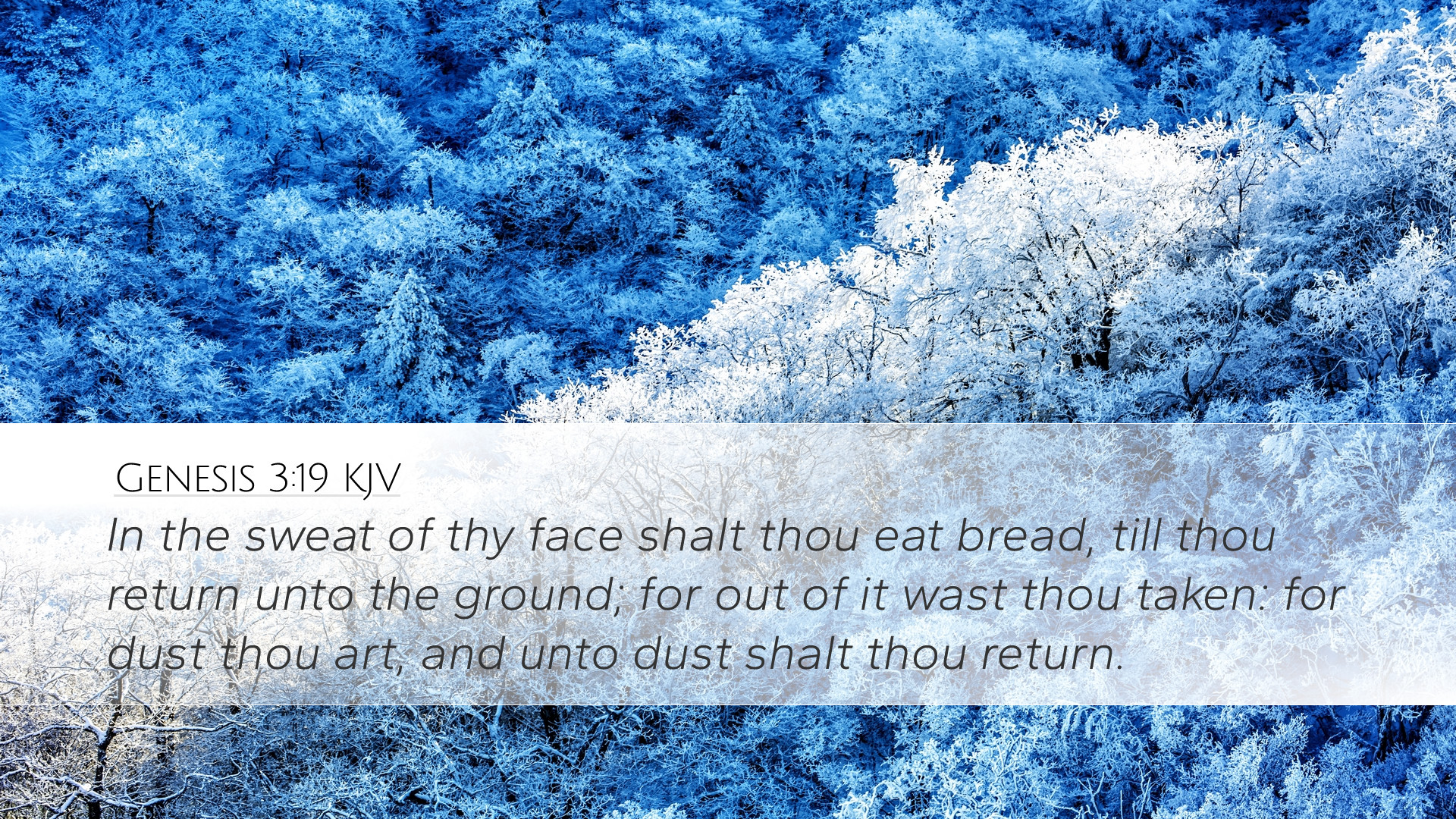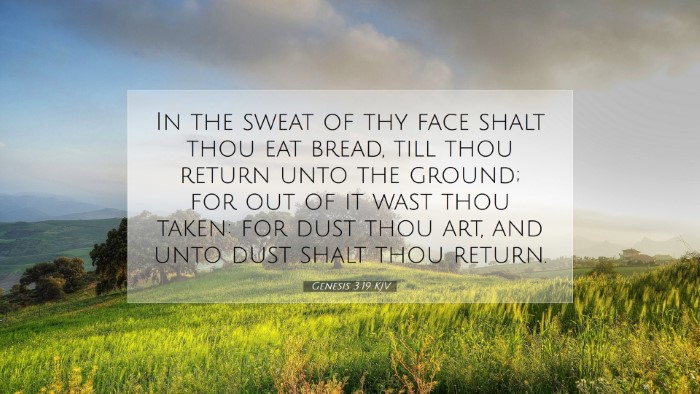Commentary on Genesis 3:19
Text of Genesis 3:19 (KJV): "In the sweat of thy face shalt thou eat bread, till thou return unto the ground; for out of it wast thou taken: for dust thou art, and unto dust shalt thou return."
Introduction
Genesis 3:19 stands as a profound and sobering declaration that encapsulates the consequences of the Fall of Man. This verse not only reflects the immediate reality of labor and toilsome existence due to sin but also introduces the biblical theme of mortality and the ultimate return to the earth. Renowned public domain commentaries shed light on the theological implications and practical applications of this passage.
Context and Setting
The context of Genesis 3:19 finds its roots in the narrative of the temptation and subsequent disobedience of Adam and Eve. Following their choice to eat from the tree of the knowledge of good and evil, God pronounces judgments that will affect not only humanity but all of creation. This particular verse is part of the last words of God to Adam concerning his new condition – a life of toil and the certainty of death.
Theological Insights
1. The Consequence of Sin:
Matthew Henry asserts that the labor Adam would experience symbolizes the futility and hardship that characterize human existence after the Fall. The once perfect and easy tasks of tending the Garden are now marred by struggle, reflecting the broader impact of sin on creation. This change highlights the theme of divine justice; sin carries consequences that alter the fabric of life.
2. Mortality and the Cycle of Life:
Albert Barnes emphasizes the phrase "for dust thou art, and unto dust shalt thou return" as a reminder of human mortality. This assertion acknowledges humanity’s fragile nature and origin from the earth. It encourages believers to reflect on the temporary nature of earthly existence and the inevitability of death, pointing them toward a greater hope in resurrection and eternal life through Christ.
3. The Necessity of Labor:
Adam Clarke comments on the importance of work as a God-ordained aspect of human life, noting that despite the curse of toil, labor itself is not intended to be a punishment but rather a means of provision and development. Work serves a dual purpose: it supports the body and shapes character. Clarke also highlights how God's original design encompassed work as a fulfillment rather than merely a burden.
Practical Applications
1. Understanding Our Human Condition:
This verse calls for a realistic understanding of human life, characterized by labor, suffering, and temporary existence. Pastors and theologians can use this text to teach congregations about the reality of life in a fallen world, fostering a sense of humility and reliance on God's grace.
2. The Redemptive Narrative:
The recognition of our mortality should lead to a greater appreciation for Christ's redemptive work. Echoing the insights of the commentaries, students and scholars can connect Genesis 3:19 to the broader narrative of scripture that points to the resurrection, reaffirming hope amidst the labor and trials of life.
3. The Value of Work:
Encouraging a biblical view of work is crucial. As Clarke notes, work is not merely a burden but an essential part of fulfilling God's purpose. The transformation of our understanding of labor can lead to a healthier attitude toward daily tasks, fostering diligence and satisfaction in fulfilling responsibilities.
Conclusion
Genesis 3:19, through the insights of respected biblical commentators, presents a rich tapestry of theological and practical truth. It serves as both a reminder of humanity's fallen state and an invitation to lean into the grace that God offers through Christ. The lessons learned from this verse can profoundly influence how pastors, students, and theologians approach life, work, and the hope found in the promises of God.


